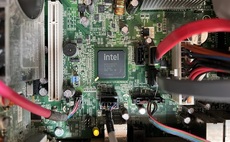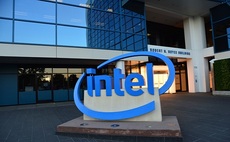Edison evolves to an Atom device with more I/O capabilities for embedded applications
SAN FRANCISCO: Intel has announced global availability of its diminutive Edison platform for wearables and the Internet of Things (IoT) at its Intel developer conference (IDF) in California. The...
To continue reading this article...
Join Computing
- Unlimited access to real-time news, analysis and opinion from the technology industry
- Receive important and breaking news in our daily newsletter
- Be the first to hear about our events and awards programmes
- Join live member only interviews with IT leaders at the ‘IT Lounge’; your chance to ask your burning tech questions and have them answered
- Access to the Computing Delta hub providing market intelligence and research
- Receive our members-only newsletter with exclusive opinion pieces from senior IT Leaders





















